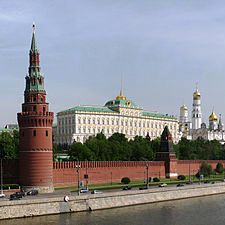(Eurasia Daily Monitor) The news that the Boston terrorists are ethnic Chechens who have lived in the United States for many years may be shocking for many Americans, but in Russia it does not seem that surprising. How Tamerlan Tsarnaev had become so alienated from the country that became his home that he made his younger brother Jhokar an accomplice in the crime of murdering innocent people at the finish line of the Boston marathon is a mystery of a distorted mind. However, Russians see the alienation of ethnic communities under the threat of xenophobia in every large and small city—and are well aware of the smoldering civil war in the North Caucasus (Colta.ru, April 20). Dagestan is a cauldron where crime and corruption blend with religious extremism to produce toxic radicalization; officially sanctioned terror rules in Chechnya; and other forms of violence flourish across the region. The news about the criminal gang that ruled the resort city of Anapa near Sochi and dumped bodies of opponents in mass graves broke in parallel with the updates on the manhunt in Massachusetts (Novaya Gazeta, April 19). Russian authorities worry primarily about bad publicity for the Sochi 2014 Winter Olympic Games and recycle the denials of a deepening destabilization in the region.
This simulation of normalcy and sustainable prosperity starts from the very top as the Kremlin maintains pretenses of executing effective control over political trepidations and economic calamities. Prime Minister Dmitry Medvedev made a report to the State Duma last week (April 18) and did a reasonably good job explaining away the country’s sluggish growth and painting cloudless prospects (Kommersant, April 18). However, the day before, President Vladimir Putin fully undermined Medvedev’s message with his severe criticism of the government’s miniscule efficiency and his direct threat to dismiss it (Nezavisimaya Gazeta, April 18). Putin’s harsh words, uttered at a “closed to the media” meeting, were supposed to frighten the ministers and governors, but the “leak” of the president’s remarks was too orchestrated to be accidental (Kommersant, April 17). In fact, Putin hardly entertains ideas about disbanding either the government or the State Duma because he can preserve the illusion of his leadership only by channeling public resentment toward these institutions. […]
See the full article | © Eurasia Daily Monitor










